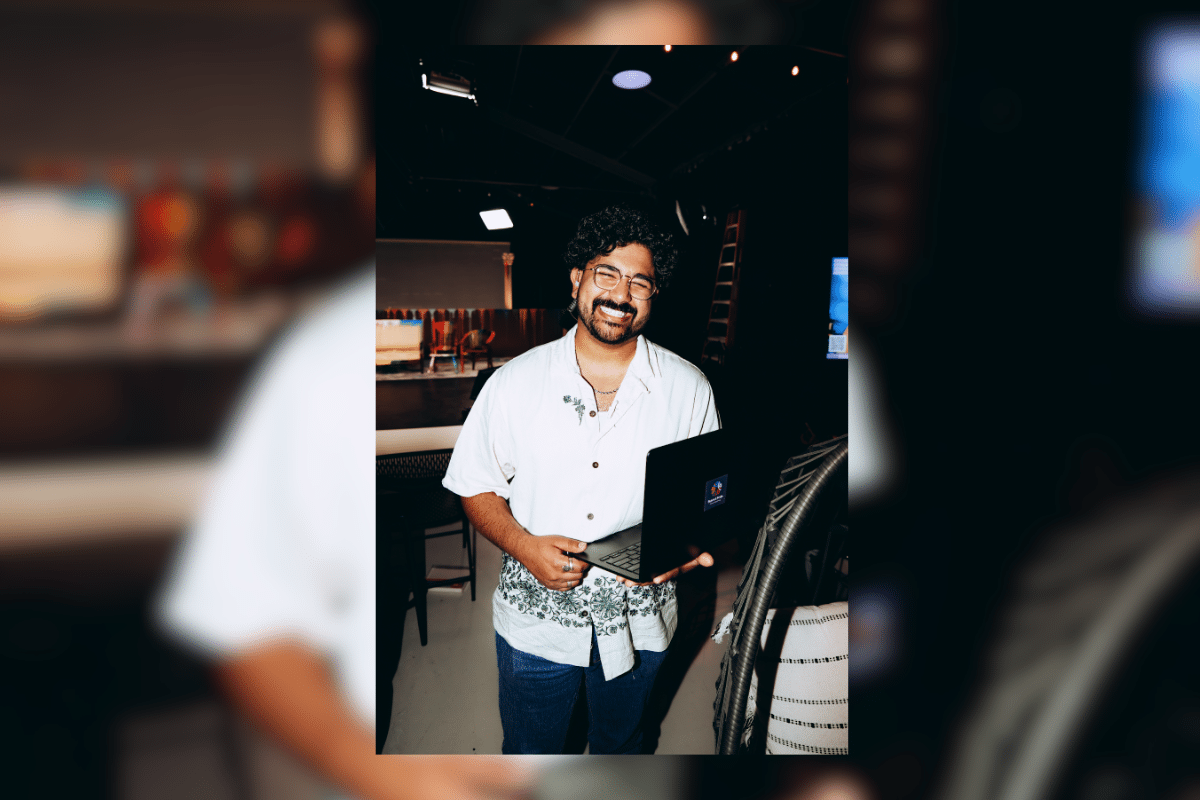Influencer
How Creators Can Ignite Civic Action
In a nondescript Birmingham, Alabama home, Hassan Khadair sits in front of a camera, wielding a Mickey Mouse puppet. It’s an unlikely setup for someone who has helped raise nearly $2 million for humanitarian causes in Gaza. But in today’s creator economy, the line between entertainment and social activism has become increasingly blurred—and increasingly powerful.
“I’m a control freak,” admits the 26-year-old director of Creators for Peace, who produces up to 13 videos daily while orchestrating large-scale charity events featuring some of YouTube’s biggest names. His journey from a 13-year-old fan of Ryan Higa to a leader mobilizing over 135 creators for social causes exemplifies a fundamental shift in how content creators and influencers engage with social and humanitarian issues.
From Group Chat to Movement
What started as a simple Instagram group chat in May 2023 has turned into a serious civic engagement movement. Creators for Peace, born during the siege of Rafah in Palestine, brought together unlikely allies: the Try Guys, Hasan Piker, Tyler Oakley, and the entire Smosh crew, among others. Their first livestream raised over $1 million for humanitarian aid in Gaza—a figure that would make many traditional nonprofits envious.
“We built out a live stream with Try guys, Hassan Piker, Tyler Oakley, all the Smosh crew, and then some,” Hassan recalls. “So many wonderful creators came together.”
The organization’s growth reflects a broader trend in the industry. As traditional media loses its grip on younger audiences, creators have become the primary source of news and political discourse for millions. “We’re not going to a CNN or Fox or an NBC,” Hassan explains. “We’re going to Hank Green. We’re going to people on TikTok to tell us what’s happening in the world.”
The Socio-Civic Discourse
For creators who built their brands on comedy, gaming, or lifestyle content, entering the socio-civic conversation comes with significant risks. Brand deals can evaporate. Speaking opportunities disappear. Hassan himself has experienced the chill firsthand: “There’s definitely been conversations that were moving steadily for years and then have very much halted.”
The challenge is particularly acute when addressing issues like the humanitarian crisis in Gaza or trans rights—topics that Hassan insists are humanitarian, not political, but which brands treat as radioactive. “When it comes to these politically immersed topics, brands and companies aren’t interested in helping in any way, shape, or form,” he notes.
Yet the cost of silence may be rising. During the recent Los Angeles wildfires and ICE raids, creators who maintained their usual content schedules faced backlash from followers demanding engagement with the crises unfolding in their city. “The bygone era of ‘I’m a non-political creator’ doesn’t really exist anymore,” Hassan observes.
The New Media
The shift isn’t just about individual creators finding their political voice—it’s about the fundamental restructuring of how information flows through society. At VidCon, where Hassan will speak on a panel about social media’s role in shaping news consumption, the transformation seems evident. The event, which was once primarily focused on entertainment and brand partnerships, now features discussions on civic engagement and social responsibility.
“You have a generation of people here to challenge the government and challenge every little thing that this administration and the last administration does, because we’re far more aware of it and we’re not interested in reading into the propaganda,” Hassan says.
This democratization of information has created what amounts to a parallel media ecosystem. When traditional outlets shy away from certain topics, creators fill the void. When mainstream narratives feel inadequate, TikTok explainers and YouTube deep dives provide alternative perspectives.
The Business of Conscience
Despite the risks, Hassan views creator activism as not only morally necessary but also strategically wise. His approach with Creators for Peace offers a model for how entertainment and advocacy can coexist. By creating “a fun event that raises money” without requiring participants to “get into the nuances and minutiae of the political issues themselves,” he’s found a way to leverage creator star power while respecting their comfort zones.
The financial mechanics are deliberately transparent. All funds flow through Tiltify, an established fundraising platform, directly to verified charities. “No money ever hits a bank account that isn’t either the Tiltify Impact fund or the direct fund of the given charity,” Hassan emphasizes—a crucial detail in an era of skepticism about online fundraising.
For Hassan personally, the puppet videos that made him famous continue to pay the bills, allowing him to devote time to organizing. It’s a delicate balance that many creators are learning to strike: maintaining commercial viability while using their platforms to support causes they believe in.
What’s Next?
As Creators for Peace prepares for its next major event—a fundraiser for trans rights featuring Vivian Wilson as co-host—the organization represents something larger than any single cause. It’s a test case for whether the creator economy can mature from a purely entertainment-driven force into a catalyst for social change.
“I think at this point, it’s probably the most important part of being a creator is using your voice responsibly,” Hassan argues. It’s a sentiment that would have seemed foreign to the early YouTube era of pranks and challenges, but increasingly reflects the reality of a media landscape where a comedy YouTuber might have more influence on political discourse than a cable news anchor.
The question isn’t whether creators will continue to engage with social and political issues—that ship has sailed. The question is how they’ll navigate the tension between authentic advocacy and commercial survival, between speaking out and maintaining broad appeal. For Hassan and the growing ranks of creator-activists, the answer lies not in choosing sides but in recognizing that silence itself is a political statement in today’s media ecosystem.
“Your bad days are your best stories,” Hassan likes to say. For a generation of creators learning to use their platforms for more than entertainment, those words might just become a rallying cry.





















